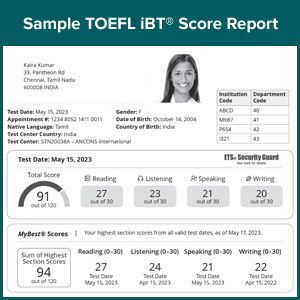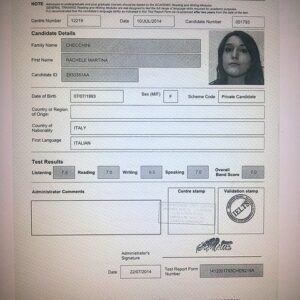Description
Here’s your article:

Ace the TOEFL: Your Ultimate Guide to Success
Imagine you’re ready to chase your dream of studying abroad. But then, the TOEFL looms. It feels overwhelming, right? Don’t worry! The TOEFL, or Test of English as a Foreign Language, measures your English skills if it’s not your first language. This guide will help you understand the TOEFL and give you the tools to do well on the exam.
Understanding the TOEFL: Format and Scoring
The TOEFL iBT (Internet-Based Test) has four parts that measure your English skills. These are reading, listening, speaking, and writing. It’s important to know how each section works so you can prep like a pro.
The Four Sections: Reading, Listening, Speaking, and Writing
Each section of the TOEFL tests different skills. Knowing what to expect can make a big difference.
- Reading: You’ll read academic passages and answer questions. These questions check if you understand the main idea, specific details, and what the author might be hinting at. You’ll have a certain amount of time for each passage, so pace yourself.
- Listening: Here, you’ll listen to lectures and conversations. Questions will test your understanding of the speaker’s purpose, attitude, and specific info. Taking good notes is super important.
- Speaking: This part has both independent and integrated tasks. Independent tasks are about your own experiences. Integrated tasks combine reading, listening, and speaking. Your score depends on clear delivery, good language use, and how well you develop your ideas.
- Writing: You’ll write two essays: one integrated and one independent. The integrated one combines reading and listening. The independent one is based on your opinion. You’ll want to develop your ideas well, organize your thoughts, and use good language.
TOEFL Scoring System: What You Need to Know
Each TOEFL section gets a score from 0 to 30. Add them up, and your total score is between 0 and 120. Different universities have different score requirements. Some programs want higher scores. Your TOEFL score is good for two years. So, make sure you send it to schools before it expires.
Proven Strategies for TOEFL Success
Getting a good TOEFL score is all about using smart strategies. Here’s how to ace each section.
Mastering Reading Comprehension
Reading well means understanding academic texts quickly. Try these tips.
- Skimming and scanning: Skim to get the main idea. Scan to find specific info.
- Vocabulary: Use context clues and word roots to figure out unknown words.
- Practice: Practice reading passages and questions to get faster and better.
Enhancing Listening Skills
Improving your listening skills can boost your TOEFL score. Use these tips:
- Active listening: Predict what the speaker will say. Sum up the main points. Ask yourself questions.
- Note-taking: Use abbreviations and symbols to take fast, clear notes. Try outlining.
- Exposure: Listen to different accents and speaking styles. This will prepare you for anything on the test.
Excelling in the Speaking Section
Speaking clearly and confidently is key.
- Structure: Start with an intro, give your main points, and end with a conclusion.
- Pronunciation: Work on your pronunciation, intonation, and how smoothly you speak.
- Practice: Use practice questions and even do mock interviews.
Conquering the Writing Section
Writing well means writing essays that are easy to read and have good grammar.
- Brainstorm: Think of ideas and make an outline before you start writing.
- Transitions: Use words like “however” and “therefore” to connect your ideas.
- Proofread: Check your essay for mistakes.
Effective TOEFL Study Resources and Tools
Using the right study materials can make a big difference. Here are some good options.
Official TOEFL Practice Materials
ETS, the people who make the TOEFL, have official guides and practice tests. These are super helpful because they are like the real test. Use them.
Online TOEFL Preparation Platforms and Courses
There are many online platforms like Magoosh, Kaplan, and BestMyTest. They offer different features, prices, and might suit different learning styles. See what works for you.
Recommended Books and Apps
You can use grammar books, vocabulary builders, and TOEFL prep apps. Some good choices are “English Grammar in Use” and apps like Memrise. See what works for your needs.
Common TOEFL Mistakes and How to Avoid Them
Knowing common mistakes can help you avoid them.
Time Management Issues
Running out of time is a big problem. Practice pacing yourself on each section. Take practice tests with a timer.
Vocabulary Limitations
Not knowing enough words can hurt your score. Learn new words, especially academic ones. Use flashcards.
Grammatical Errors
Grammar mistakes can make your writing unclear. Review common grammar rules and do practice exercises.
Not Following Instructions Carefully
Not reading the directions can cost you points. Always read and understand the instructions fully. Practice finding the key info in questions.
Conclusion
Getting ready for the TOEFL takes time and effort. But by using the right strategies and tools, you can do great! Keep practicing, stay positive, and remember why you’re taking the test. A good TOEFL score can help you reach your goals.






Reviews
There are no reviews yet.